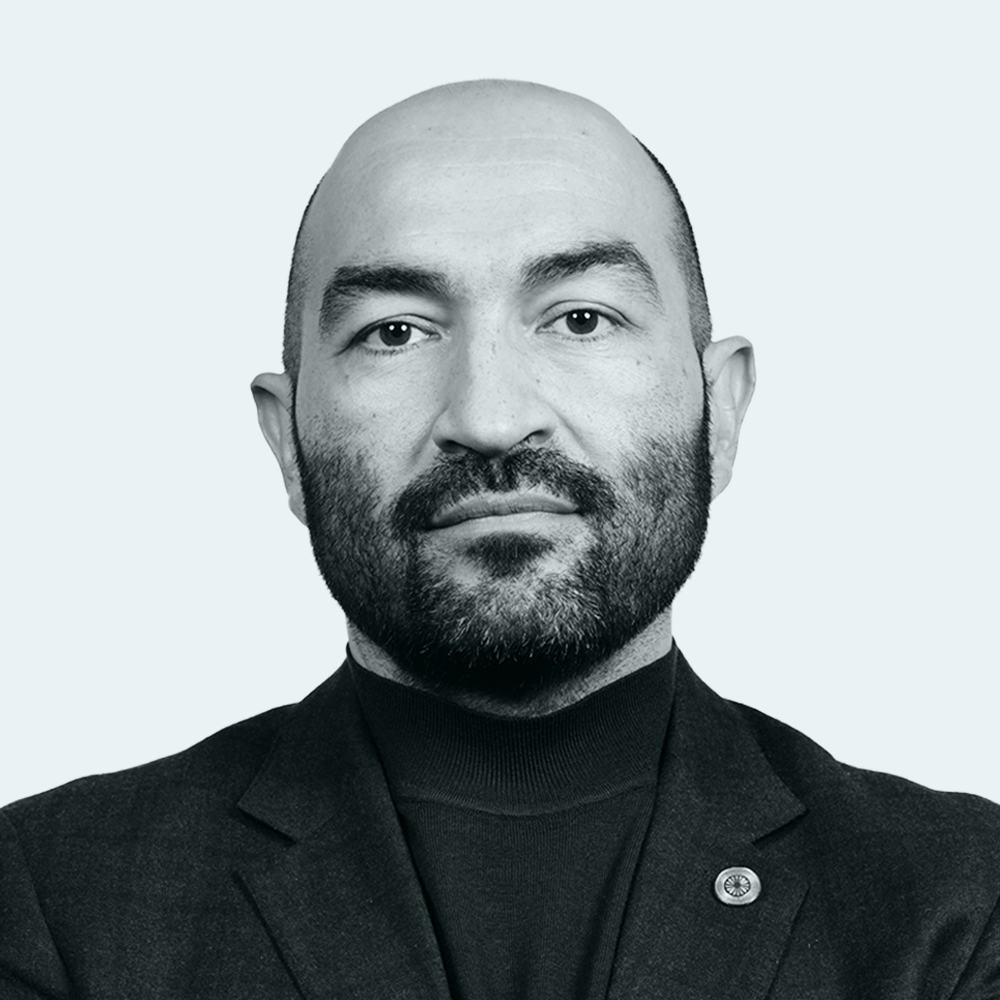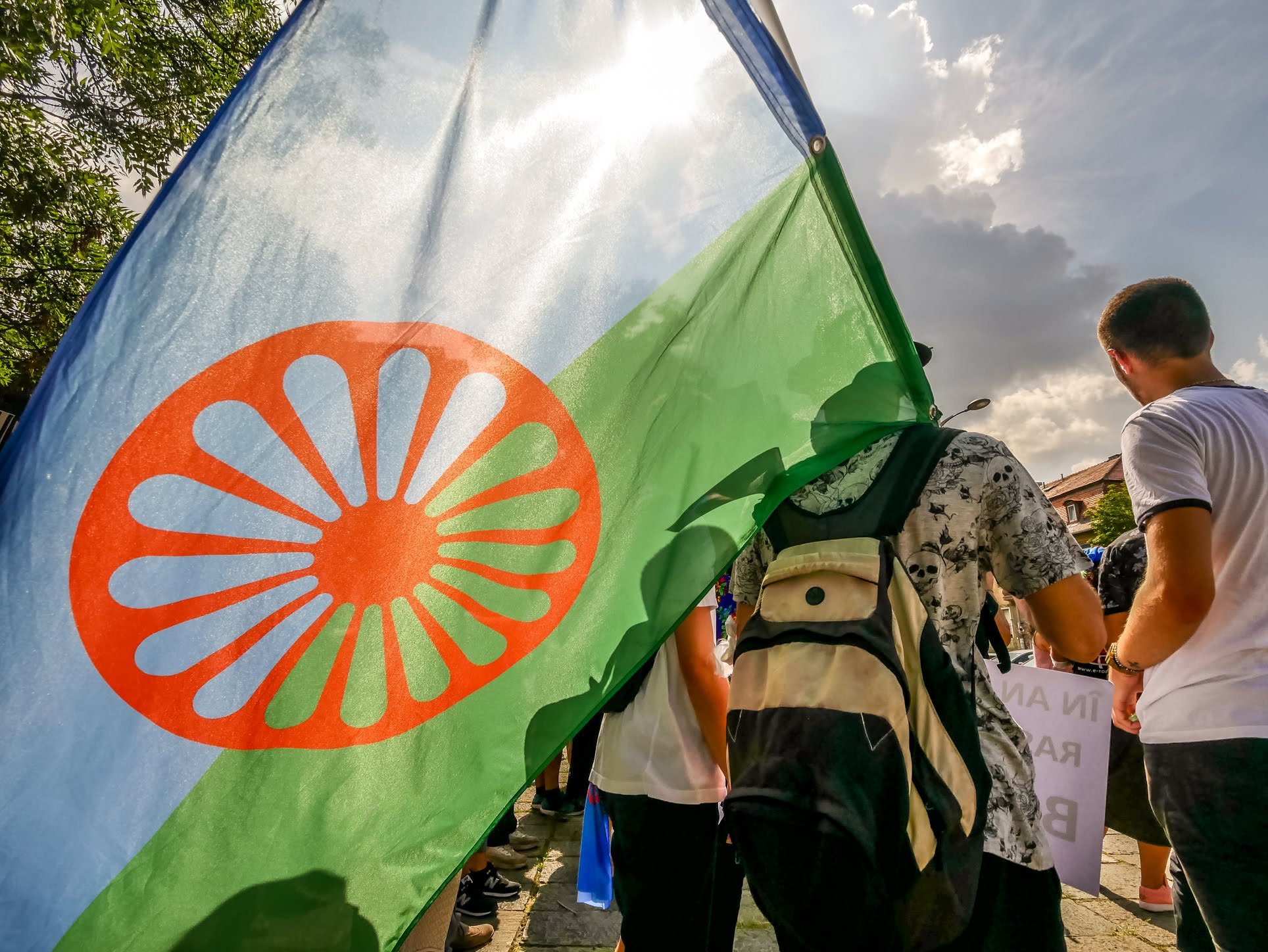Some say there’s no reason to celebrate World Roma Day, but there are reasons to celebrate with pride—not because we’ve solved the problems of Europe’s Roma but because, despite all the difficulties, we still find ways to progress.
At the heart of the wars in Ukraine and Palestine lies the question of self-determination, the right to a collective existence or nationhood. These conflicts have captured global attention, yet they are only two of many in which a struggle for or a threat to self-determination has caused immeasurable human suffering.
Self-determination is the same question that drives the biggest ethnic minority in Europe: today, on World Roma Day, Roma celebrate a symbol of self-determination and unity. This day marks the first global gathering of Roma intellectuals and advocates, the World Roma Congress of 1971.
Amid the tensions of the Cold War, Roma intellectuals from both sides of the Iron Curtain made a bold declaration: we are Roma, not gypsies or any other name given to us by others. They affirmed the Roma anthem, flag and language, symbols of our nationhood. Meeting just 26 years after the end of World War II and the genocide of our people, they refrained from claiming any territory. We honour their courageous self-assertion and, like them, we still opt to solve conflicts through democratic politics rather than through violence.
Nevertheless, some dismiss the legacy of World Roma Day on two grounds. First, they say those who gathered for the World Roma Congress had no political legitimacy; they were neither representatives of the Roma masses nor the different cultural or religious groups among the Roma. Why, therefore, would we be expected to respect their decisions?
Indeed, they had no political legitimacy that would oblige us to mark this occasion today. Despite that, there are hundreds if not thousands of events worldwide on 8 April, and all of them use at least some, if not all, of the symbols they declared as fundamental to our collective identity all those years ago.
Let's put this in perspective. To make their nationhood a reality, others govern territory and establish universities, museums, public media institutions and other instruments of power. They also build armies, oppress other groups or invade neighbours. The violent nationalism we witness across the world today kills many.
Even without political legitimacy or institutions that oblige and enforce, the message of World Roma Day captured the imagination of those Roma who want to belong to something bigger than themselves, bigger than our families, neighbourhoods, countries, religions or continents. Its power has occupied a different territory: our desire to grow our nationhood without denying or threatening the nationhood of others.
The second objection is that we have nothing to celebrate on this day. The reason for this position is usually the destitution in which many Roma in Europe live today. In such a situation, they say, celebration masks the realities of our dispossession.
Nevertheless, we do have reasons to celebrate, not because we have solved all the problems but because, despite all the difficulties, we still find ways to progress. Let's look at just a few examples that illustrate our resilience.
In 2023, the European Roma Institute for Arts and Culture (ERIAC) won a prestigious French prize for the best history exhibition of the year. ERIAC won it in partnership with Mucem in Marseille, one of the 50 most visited museums in the world, where it co-curated an exhibition on Roma history that attracted more than 400,000 visitors.
Last year, six Roma were elected to the parliament of Slovakia, a record in European politics. More than 50 Roma politicians also won in local elections in Bulgaria, which has the most corrupt, dangerous and brutal electoral environment in the EU. Moreover, an observation team consisting of 450 Roma observed these elections to safeguard both the votes of Roma and democracy in Bulgaria.
At the 2024 European Weightlifting Championships, Bozhidar Andreev, a Roma weightlifter from Bulgaria, set a new European record of 193 kilos in the clean and jerk event. He won a European gold medal and will compete in the Olympic games in Paris later this year. Besides being devoted to his own success, Andreev also mentors other young athletes at his home club. He is one of many Roma athletes who have made us proud since World Roma Day last year.
With all this in mind, World Roma Day has the power to transcend divisions and grow our nationhood, not because it has some formal legitimacy but because it nourishes our collective belonging. Celebrating it with pride does not deny the harsh reality of so many Roma lives but rather gives us the strength to fight together to improve our circumstances. Celebrating World Roma Day also means celebrating every positive step and accomplishment because we know the barriers we face are higher and more numerous than those faced by our fellow citizens. Every sign of progress is a reminder that we had to do more than others to get there.
In the times we live in—marked by conflicts like those in Ukraine and Palestine—World Roma Day has a moral significance beyond the Roma sphere: it serves as an example of non-violent resilience in the face of adversity. Even if others are not prepared to recognise the value of World Roma Day, we must celebrate it with collective pride—pride in who we are, how we reached this point and what we are becoming.

Zeljko Jovanovic
President
The latest

Serbia Must Amend Missing Persons Alert System to Protect Vulnerable Adults

Constitutional Review of the Šutar Law Confirms Serious Rule-of-Law Concerns

Europe’s Growth Depends on Roma Talent
Browse by category
Campaigns
Events
Facts
Press
Voices
For media inquiries:
[email protected]Sign up here so you don’t miss out on campaign updates, upcoming events and other news from the Roma Foundation for Europe and our network.
Sign up for our newsletter